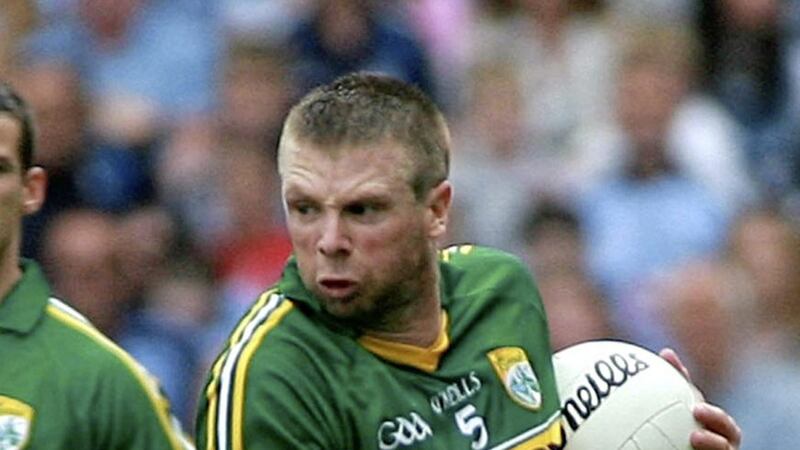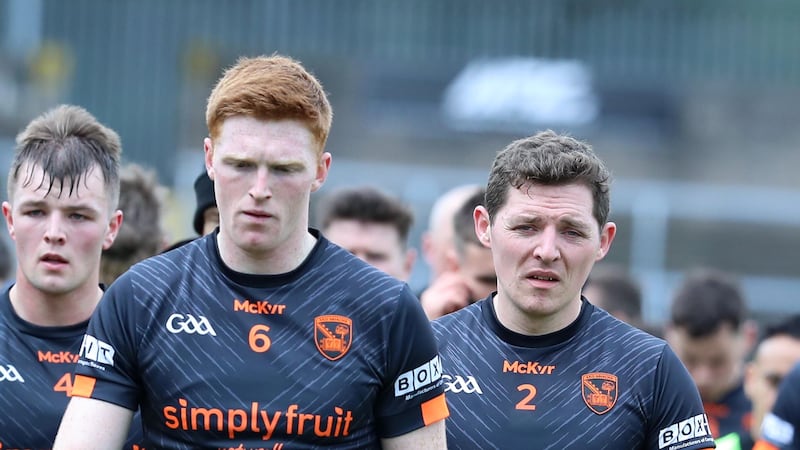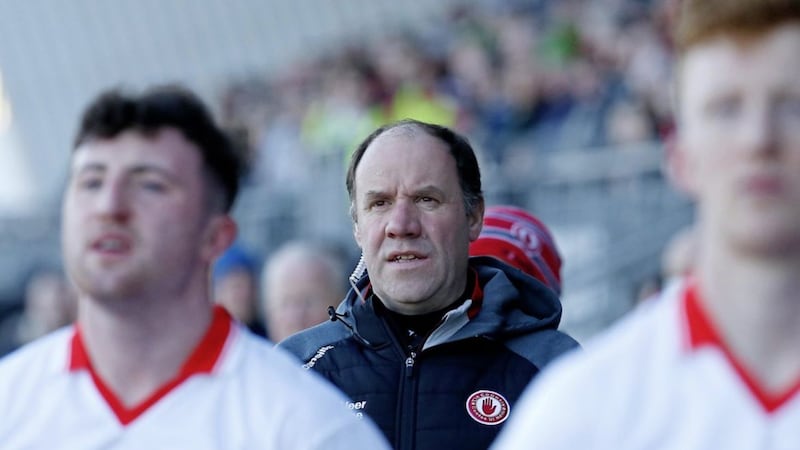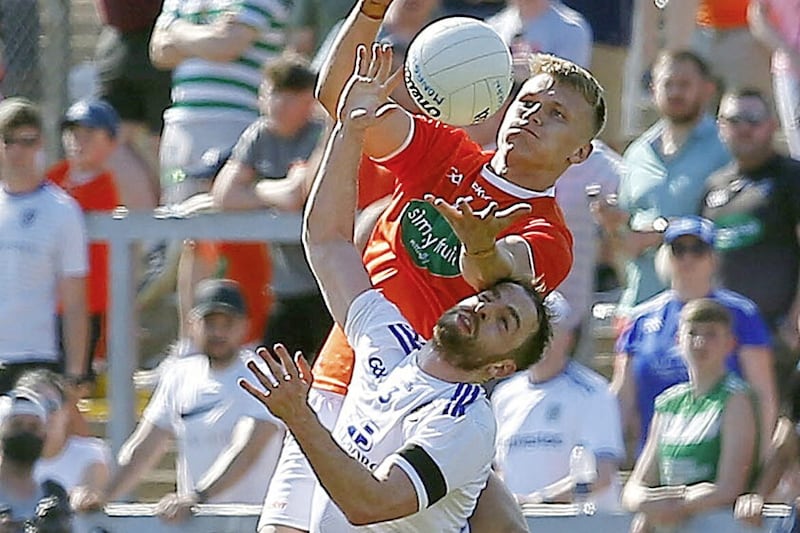BOOK reading in general would not be a strong point of mine, but autobiographies by sporting heroes across the whole spectrum of professional and amateur codes do interest me.
I love talking about, thinking about and analysing sports and thankfully, reading about sports people and what makes them tick. I am always looking for something which I can possibly use to my own advantage in life.
I have kicked off 2017 with Paul O’Connell’s The Battle with Kieran Donaghy and Dave Alred’s offerings on my to do list. For different reasons, my knowledge has been enhanced by the personal stories of sporting figures such as Sean óg ó hAilpin, Jim McGuinness and Tomás Ó Sé.
Sean óg ó hAilpin was a player I admired greatly growing up. How he carried himself both on and off the field meant he generated a lot of followers from all over the country.
The stories of his attention to detail in his preparation and remarkable fitness levels were legendary. His thirst for perfection, enthusiasm for life and his nature marked him out as a role model in my eyes.
Even though I got to know the Cork hurler on a personal level, I still found his book remarkable. He gave great insight into his life growing up in Australia before moving to Ireland to begin a new life where he excelled in adapting to new surroundings, sports and language.
The life and times of Jim McGuinness and the step by step account of how he helped inspire a new generation of Donegal footballers to a second All-Ireland success is another superb read. McGuinness gives an extremely personal account in fine detail of how he plotted the pathway to ultimate success.
However, one of the most striking and enjoyable aspects of his book was the amount of times he told both his players and family how much he genuinely ‘loved them’.
No doubt the deaths of his brothers Charles and Mark had a profound impact on his life, but we do not often see or hear our macho Irish sporting figures expressing themselves in this manner.
McGuinness is different in this regard; reading his book left it easy for me to understand how he managed to sustain the same level of commitment from the playing group throughout his four-year term.
Tómas ó Sé’s love of family and desire to be part of and uphold the best of Kerry football and all their traditions shine throughout his memoir, just like it did in his uncle Paidi’s book.
Even though Tomas has now become a super TV analyst, he was someone that avoided the media limelight throughout his career. It meant the book was intriguing as it offered an insight into personal experiences which spanned a 17-year inter-county career.
He opted for specific topics like managerial relationships, struggles with self-discipline and relationships with Cork, Dublin, Tyrone, Armagh and Mayo.
He did it throughout with an endearing dry wit that is embedded in the O Sé genes. One of the most interesting GAA books I read recently was titled Dub Sub Confidential written by John Leonard.
Leonard was a goalkeeper who had the talent to get on the Dublin squad of the early-to-mid 2000s. However, he had the misfortune to reach the county scene at the same time as Stephen Cluxton, arguably the greatest goalkeeper of all time.
Leonard outlines the life of a Dublin footballer as you’ve never imagined or heard about in interviews. His version of events makes their recent achievements in Leinster and All-Ireland pale into insignificance when compared with the damage he inflicted on himself via drink and drugs.
For anyone interested in sport, not alone in the GAA, I strongly recommend this. It removed the naivety I possessed by thinking stuff like this does not happen in Ireland.
It certainly does not happen among the elite role models within our GAA teams. Lenoard’s book reminds me of the best book I have ever read...
Ben Cousins is a former Australian Rules footballer, best known for his 270-game career with West Coast and, in later years, Richmond Tigers in the AFL.
Cousins’s story is that of a typical flawed genius. It is as fascinating as it is frightening, a tale on a par with those of George Best and Paul Gascoigne.
He is listed among the greatest AFL players of all time. A Brownlow medal winner, captain of his team and winner of a Grand Final. The guy who the boys aspired to be and who girls aspired to be with.
A footballer with a unique talent, an individual so driven to succeed, he would stop at nothing to be the best that he could be. The best that Ben Cousins could be was always about laying himself a new challenge, making things harder and always striving to be better than before.
But everything in Ben Cousins’s life was essentially a lie. Cousins was a drug addict, by his own admission. When you see images of a supremely chiselled athlete controlling games at the highest level, you are left wondering how someone so blessed with talent could throw it all away for the sake of a ‘good night’.
Cousins’s lifestyle eventually caught up with him and he was sacked by the West Coast Eagles. He was thrown another lifeline by the Richmond Tigers, but proceeded to blow that one as well.
I think we always want to see the best in people, but after finishing the book, I almost felt sorry for Cousins. An in-depth documentary on YouTube shows Cousins at his lowest, in the height of his addiction.
His remorse is evident, especially when speaking about his family, long-term girlfriend, his team-mates, the pressures of his life and the expectations to perform.
When I read his book while on honeymoon in Australia five years ago, I naively felt his issue was unique to Australia, that we don’t nor won’t ever have such issues in Ireland.
But times are changing and not always for the better. The world is a much smaller place than it once was and now, more than ever, it is vital that our sports stars across the country use our privileged positions as role models within clubs and communities to encourage and enhance the next generation.
All it takes for wrongdoing to prevail is for good men to do nothing. Our lives begin to end the day we become silent on things that matter. Cousins’s story simply drives home the message that most drug use driven by experimentation is only harboured by deeper emotional issues and that mental health awareness needs more attention.








